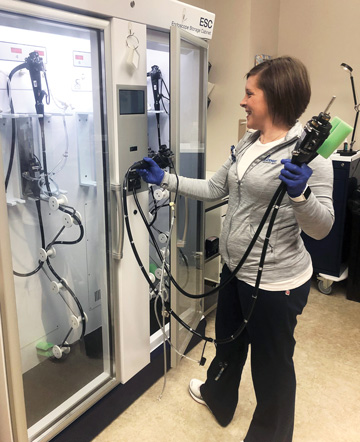Best practices in the high-level disinfection of flexible endoscopes must be prioritized after every one of the estimated 15 million colonoscopies performed each year in the U.S., says James Collins, BS, RN, CNOR, endoscopy accreditation nurse for the Digestive Disease & Surgical Institute at the Cleveland Clinic. He’s one of seven co-authors of the latest multisociety guideline on reprocessing flexible GI endoscope and accessories, which was published in January 2021.
Last March, the Association for the Advancement of Medical Instrumentation (AAMI) released the updated ANSI/AAMI ST91:2021/ standard for the reprocessing of flexible and semi-rigid endoscopes. Some of the key revisions and additions involve factors related to decontamination sinks; training competency and certification; HVAC and water quality monitoring; leak testing; broadened cleaning and inspection steps; heightened focused on endoscope drying; and revised storage requirements. “Drying and storage has become one of the elements being looked at more closely, due to the fact that wet endoscopes are a hazard for bacterial growth,” says Mr. Collins. “We know more about biofilms and how they work, and the effects they have on wet scopes that aren’t dried properly.”
.svg?sfvrsn=be606e78_3)

.svg?sfvrsn=56b2f850_5)